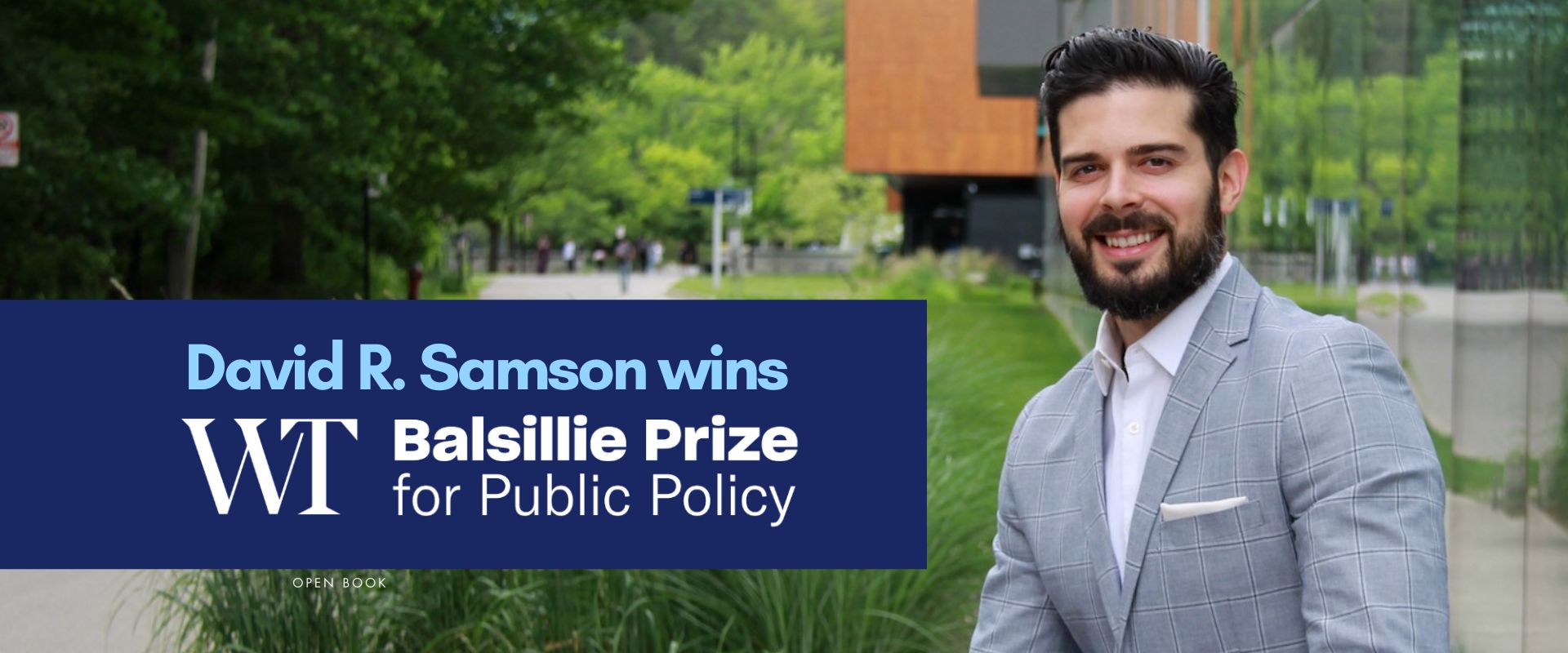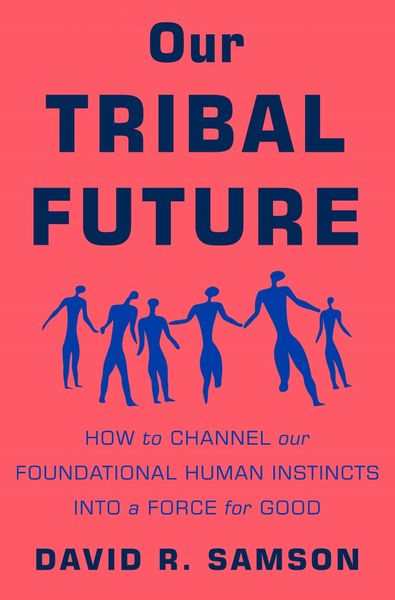Anthropologist David R. Samson Wins $60,000 Balsillie Prize for Public Policy
Fresh off awarding more than $300,000 in awards just last week, the Writers' Trust announced today more exciting prize news, with the third annual presentation of the Balsillie Prize for Public Policy.
This year's winner is David R. Samson of Mississauga for Our Tribal Future: How to Channel Our Foundational Human Instincts into a Force for Good (St. Martin's Press).
Samson is an associate professor of biological anthropology at the University of Toronto and director of the Sleep and Human Evolution Lab. An interdisciplinary scholar investigating major behavioural and physiological transitions in human evolution, he has worked with a range of primate species and studied sleep in different types of human societies. Samson’s research has been profiled by the BBC, Time, and The New York Times, among others.
Awarded annually, the Balsillie Prize recognizes comprehensive and thoroughly researched nonfiction books that further policy discussions on social, political, economic, and cultural topics. The award is funded by businessman and philanthropist Jim Balsillie. With a prize of $60,000, it is one of the largest of its kind for public policy titles in Canada. Sponsorship of this prize is part of a $3 million commitment from Balsillie to support our nation’s literature.
Samson's win was announced at a private dinner in Toronto. A jury composed of author and physician Samantha Nutt, policy expert Taki Sarantakis, and digital strategist Scott Young selected the shortlist and winner. In total, 43 titles were submitted by 25 publishers. Of Samson's book, they said:
"In Our Tribal Future, David R. Samson does something remarkable: in sparkling prose and rich empirical detail, he provides a tour de force of how our tribal brains operate in our modern world. Things that were essential to our survival in the past now potentially imperil our future. This important contribution to our public policy toolkit explains why trust is declining across our society and why our public spaces increasingly feel hostile rather than welcoming. There is no one in public life — and no one interested in public life — who will not benefit from the deep and enduring implications of this book."
The three jurors described the difficulty of selecting just one winner from a slate of essential and urgent public policy subjects, saying their deliberations reached "a fever pitch this year, prompting fierce and impassioned debate amongst the three of us".
The four remaining finalists each received $5,000 (co-authors evenly divide prize monies). They are:
Your CanLit News
Subscribe to Open Book’s newsletter to get local book events, literary content, writing tips, and more in your inbox
- Ajay Agrawal, Joshua Gans, and Avi Goldfarb (Toronto) for Power and Prediction: The Disruptive Economics of Artificial Intelligence (Harvard Business Review Press)
- Michelle Good (Maple Creek, Saskatchewan) for Truth Telling: Seven Conversations about Indigenous Life in Canada (HarperCollins Publishers)
- Ryan Manucha (Toronto) for Booze, Cigarettes, and Constitutional Dust-Ups: Canada’s Quest for Interprovincial Free Trade (McGill-Queen's University Press)
- Max Wyman (Lions Bay, British Columbia) for The Compassionate Imagination: How the Arts Are Central to a Functioning Democracy (Cormorant Books)
For more information on this year’s finalists visit writerstrust.com/BalsilliePrize. Titles are available in accessible formats for different types of print disability through the Centre for Equitable Library Access (CELA) at celalibrary.ca/awards.




